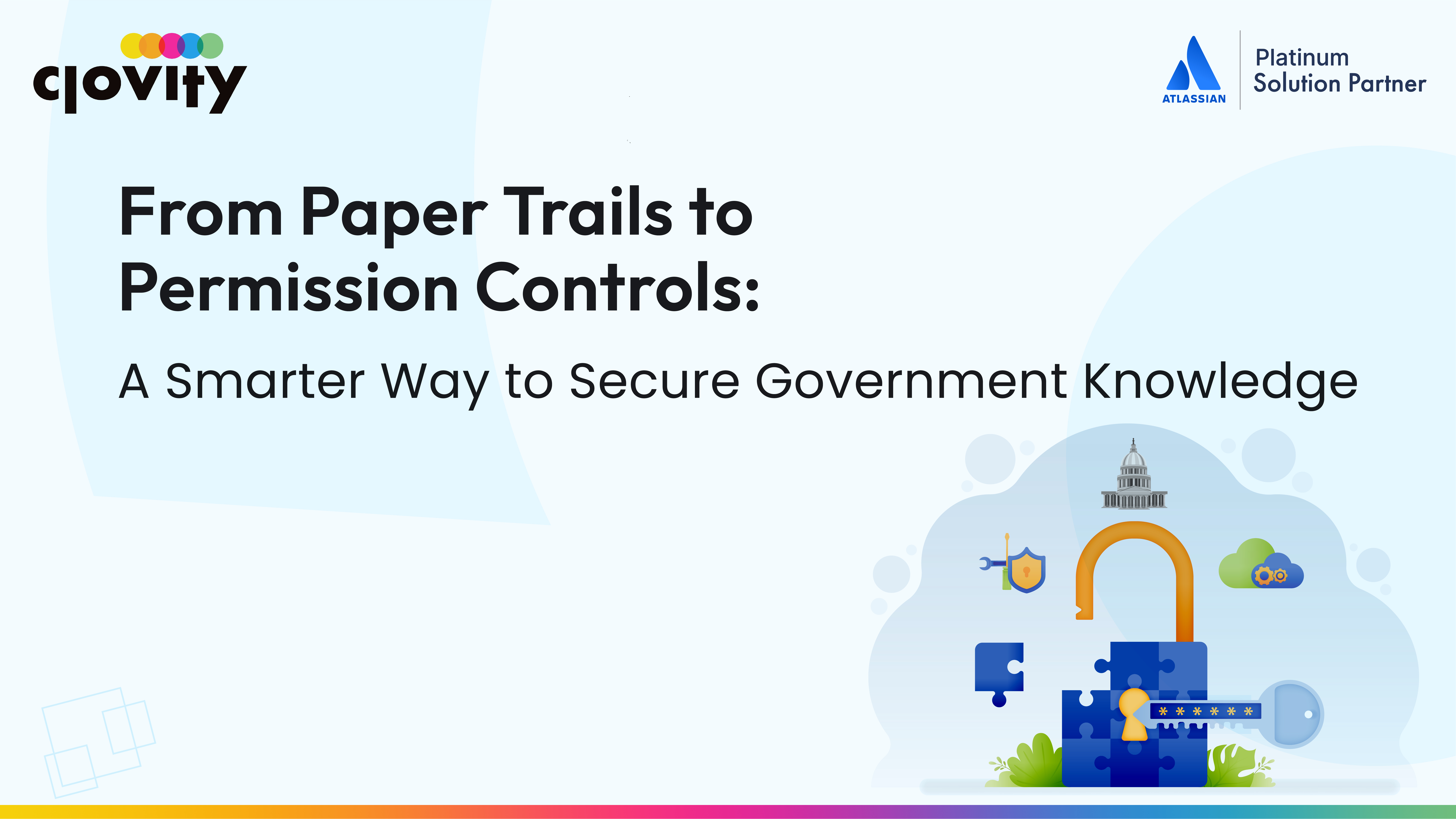Government agencies have long relied on extensive documentation to record decisions, policies, and processes. Traditionally, this meant paper files stacked in cabinets and corridors lined with storage boxes. While these systems served their purpose, they often created challengesāslow retrieval times, risk of loss or damage, and difficulties sharing information across departments.
Today, as agencies transition to digital operations, the focus has shifted from physical paper trails to secure systems that manage knowledge electronically. Yet simply moving documents online isnāt enough. Agencies need solutions that protect sensitive data while ensuring staff can access the right information to do their work.
Why Security Must Evolve Alongside Knowledge Management
Public sector organizations handle highly sensitive information, from personal citizen data to national security intelligence. Protecting this information is not only a matter of compliance but of public trust.
Digital systems introduce new risks. Cyber threats, unauthorized access, and data breaches can all compromise critical government functions. Thatās why a smarter approach to knowledge management combines modern technology with rigorous security measures, particularly permission controls that govern who can see or change information.
The Shift from Files to Permission-Based Systems
Limitations of Traditional Paper Systems
While paper records offer physical evidence of documentation, they have significant drawbacks:
- Limited Access: Only those physically near the documents can retrieve them.
- Risk of Loss: Paper can be lost, damaged, or destroyed.
- Manual Processes: Sharing information requires photocopying or physical delivery.
These limitations can slow down operations and create vulnerabilities in both security and efficiency.
The Benefits of Permission Controls
Digital knowledge management systems introduce permission-based access, providing:
- Granular Security: Administrators can determine exactly who can view, edit, or delete documents.
- Improved Oversight: Audit trails show who accessed or changed information, supporting accountability.
- Faster Information Retrieval: Staff can search and find documents quickly, even across departments.
- Compliance Support: Detailed records help agencies meet regulatory requirements and prepare for audits.
Permission controls replace the ālocked file cabinetā approach with a dynamic system that keeps sensitive data protected while maintaining operational effectiveness.
Key Considerations for Government IT Leaders
When moving from paper-based processes to digital knowledge systems, government leaders should evaluate:
Security Certifications
Solutions should meet federal standards such as FedRAMP to ensure data is protected according to government regulations.
Role-Based Access
Not every user needs the same access level. Systems should allow administrators to assign roles, limiting sensitive data exposure to authorized personnel only.
Integration with Existing Systems
New platforms should work alongside existing tools, avoiding silos and ensuring a smooth transition from paper to digital.
Search and Audit Capabilities
Powerful search tools and clear audit trails make it easier to locate information and demonstrate compliance during reviews or investigations.
How Confluence Supports Secure Government Knowledge Management
Atlassian Confluence offers a modern knowledge management platform that meets the unique needs of government agencies. It provides:
- Detailed Permission Settings: Agencies can control access at every level, from entire spaces to individual pages.
- Security Certifications: FedRAMP-authorized environments make Confluence suitable for federal deployments.
- Integration Options: Confluence works with a wide range of tools commonly used in government IT ecosystems.
- Audit Logs: Administrators gain visibility into who is viewing, editing, or sharing content.
These features help agencies move beyond paper trails and into a secure, digital environment designed for the public sectorās specific challenges.
Looking Ahead
The journey from paper trails to permission controls is more than a technological upgradeāitās a fundamental shift in how government agencies manage, protect, and share knowledge. By adopting digital platforms built for security and compliance, agencies can ensure sensitive data remains protected while supporting their mission to serve citizens effectively.
š§ Contact us at sales@clovity.com or visit š atlassian.clovity.com to get started today.


